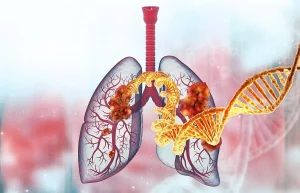Living in noise-saturated neighborhoods might be more than simply annoying, with new research suggesting it seems to raise the risk for serious heart problems.
Chronic noise from traffic and airports appears to trigger the amygdala, a brain region critically involved in stress regulation, brain scans have revealed.
Noise is also associated with increased inflammation of the arteries, which is a risk factor for stroke, heart attack and heart disease, said lead researcher Dr. Azar Radfar. She is a research fellow at Massachusetts General Hospital in Boston.
“We are not the first group talking about noise and cardiovascular disease,” Radfar said. “What we really show here is the mechanism linking noise to major adverse cardiovascular events.”
For the study, Radfar and her colleagues analyzed imaging scans of 499 healthy people, looking specifically at their brains and blood vessels.
The investigators then used the participants’ home addresses to obtain noise level estimates of their neighborhoods, based on aviation and highway noise data kept by the U.S. Department of Transportation.
People in the noisiest neighborhoods had higher levels of activity in their amygdala and more inflammation in their arteries, the researchers found.
The research team then followed the study participants for an average 3.7 years, to see if these symptoms of stress would lead to heart problems.
The findings showed that people exposed to chronic noise had a greater than threefold risk of suffering a heart attack, stroke or other major cardiovascular event, compared with people who had lower levels of noise exposure.
That risk remained elevated even after the researchers accounted for other risk factors, such as air pollution, high cholesterol, smoking and diabetes.
But the study could not prove that noise caused heart risks to rise.
Still, the amygdala appears to increase heart risk by triggering the release of hormones that fuel blood vessel inflammation, the researchers concluded.
Dr. Nieca Goldberg is director of the NYU Langone Tisch Center for Women’s Health in New York City. She said, based on this research, noise is “a link in the chain of cardiovascular risk, and I think it is an interesting question for doctors to ask their patients when assessing their cardiac risk.”
Radfar even suggested that people affected by transportation noise might consider soundproofing their homes.
On a community level, highway and urban planners can protect the populace by making road-noise barriers a part of road construction, Radfar suggested.
And, Goldberg added, if you’re in a noisy neighborhood, you might also want to consider other ways to reduce your stress. These might include yoga, meditation or aerobic exercise.
The findings are to be presented Nov. 11 at the American Heart Association’s annual meeting, in Chicago. Such research is considered preliminary until published in a peer-reviewed journal.
More information
The U.S. Environmental Protection Agency has more about noise pollution.
Source: HealthDay
Copyright © 2025 HealthDay. All rights reserved.

















